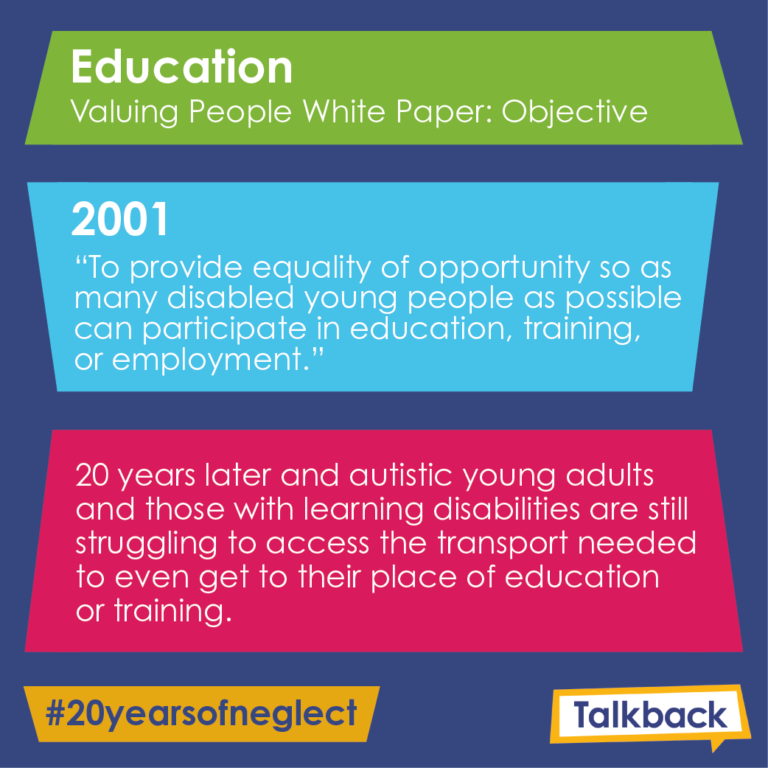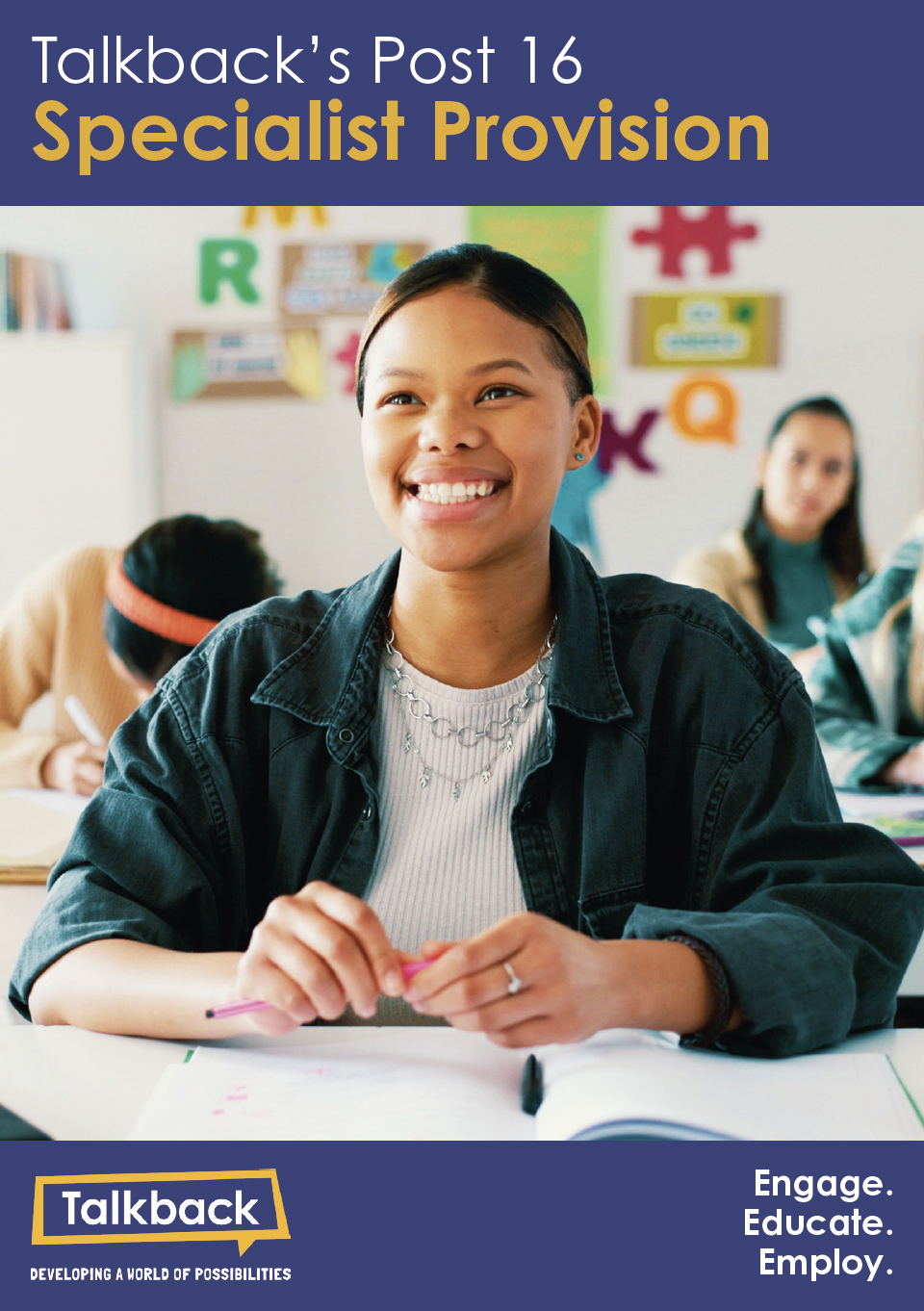Everyone has a right to education. But, autistic young adults or those with learning disabilities are still struggling to access the transport needed to even get to their place of education or training.
The right to education is a fundamental human right. Every individual, irrespective of race, gender, nationality, ethnic or social origin, religion or political preference, age or disability, is entitled to an education. In fact, the law says that a young person is expected to be in school or training until 18.
Government cuts in spending have meant that the very elements that should be enabling all young people to access this basic human right are being eroded. Because, young people, once they turn 16, lose the right to free transport that enables them to get their place of learning. The impact of this is amplified for young adults with additional needs.
When we started our 20 years of neglect campaign, we had a comment left on one of our posts from Kristel Van Wauwe. She highlights this very problem when trying to ensure her daughter could access her education.
—–
“We have a daughter with SEN who is 17 years old, the school she is at rightly encourages independence.
“Our daughter used to take the school bus to and from school, which gave her even more independence. But last year, Buckinghamshire Council slashed transport to school from September 2021 onwards for SEN students. The result being she lost that independence.
“Instead, my daughter received a FREE public bus pass (+carer goes free), however, there is no public transport to her school that she can use.
The statutory walking distances are as follows:
– up to 2 miles (if below the age of 8).
– up to 3 miles (if aged between 8 and 16).
“If the distance between home and school is more than these limits, the pupil is eligible for transport assistance. We live 1.26 miles from school, so we’re not eligible. This is not “inclusive” as she can’t cross a road safely on her own.
“In order to get my child to school, I have had to change my working hours. I’m lucky to have a boss who understands and has allowed me to do this. But I am acutely aware that this is not the case for everyone. How do nurses, teachers, shop assistants, doctors, anyone who can’t just change their working hours cope with this? I feel for parents who do not have that choice.”
—–
An online survey, run by the charity Contact, working with SEND Action and the Close the Loop parent campaign group in 2019, found that:
79% of disabled youngsters denied or charged for school transport
1 in 10 families of disabled youngsters pay over £1,000 per year.
22% (almost a quarter) said their child’s journey to school or college was stressful
19% spend more than an hour travelling to school (one way)
Impact on families who have to arrange transport themselves
69% experienced increased stress
58% are in financial difficulty
7% have had to reduce hours or give up work
3% child stopped school/college
For young autistic adults or those with learning disabilities, it is essential that they are provided with as smooth a transition as possible into adult life. Key to this, is the ability to complete their education. In fact, more than that, they are legally obliged to do so.
When will it become unacceptable to continue to place barriers in the path of those with the greatest need to access a fundamental human right? The right to education. 20 years of waiting has already been too long.
For more information on how we help, visit our Equip webpage here.





